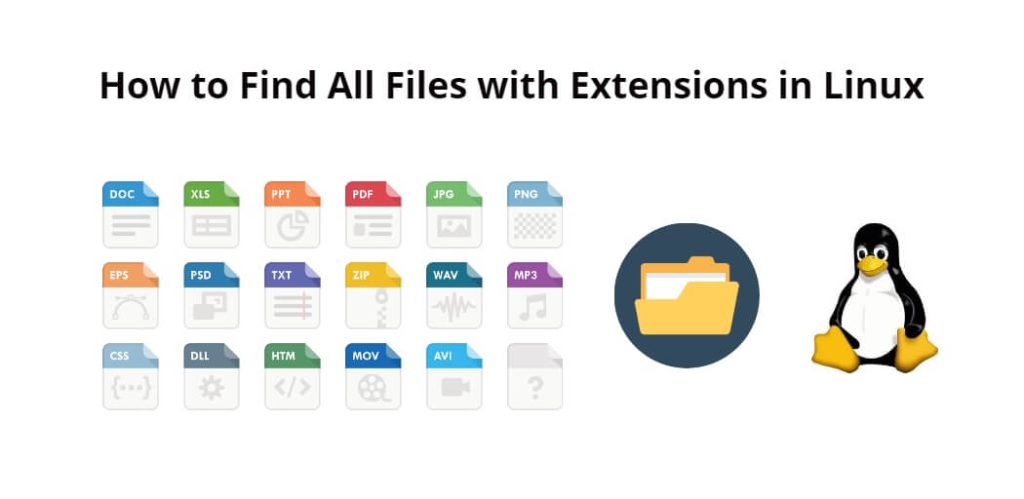When working with Linux, you may often need to find all files with a specific extension in a directory and its subdirectories. So for this many commands are available in Linux. In this tutorial, you will learn how to find all files with an extension in Linux using find, locate, and ls commands.
How to Find All Files with Extensions in Linux
To find all files with extensions in Linux, you can use the following methods:
- Using the find command
- Using the ls command
- Using the locate command
Using the find command
To find all files with an extension, use the following command:
find /path/to/directory -type f -name "*.extension"
In the above given command, you need to replace “/path/to/directory” with the path to the directory that you want to search for files. Replace “extension” with the extension of the files that you want to find.
For example, if you want to find all files with the “.pdf” extension in the /home/user/Documents directory, use the following command:
find /home/user/Documents -type f -name "*.pdf"
The above-given command will search for all files with the “.png” extension in the /home/user/Documents directory and its subdirectories.
Using the ls command
The ls command is used to list files and directories. To find all files with an extension, you can use the following command ls command:
ls /path/to/directory/*.extension
In the above-given command, you need to replace “/path/to/directory” with the path to the directory that you want to search for files. Replace “extension” with the extension of the files that you want to find.
For example, if you want to find all files with the “.pdf” extension in the /home/user/Documents directory, use the following command:
ls /home/user/Documents/*.pdf
The above-given command will list all files with the “.png” extension in the /home/user/Documents directory.
Using the locate command
The locate command is used to search for files based on their names. To find all files with an extension, use the following command:
locate "*.extension"
In the above-given command, you need to replace “extension” with the extension of the files that you want to find.
For example, if you want to find all files with the “.xls” extension, use the following command:
locate "*.xls"
This command will list all files with the “.xls” extension on your Linux system.
Here are some faqs on How to Search and Find Files Recursively in Linux:
Q: How do I find all files with a specific extension in Linux recursively?
A: There are several ways to find all files with a specific extension in Linux recursively.
- Another way is to use the grep command with the output of the find command.
- One way is to use the find command with the -type f and -name options.
- A third way is to use the ls command with the -R option and the output piped to grep.
Q: How do I find all files with a specific extension in the current directory and its subdirectories using the find command?
A: To find all files with a specific extension in the current directory and its subdirectories using the find command, use the following command:
find . -type f -name '*.extension'
Conclusion
In conclusion, finding all files with an extension in Linux is a straightforward task. You can use the find, ls, or locate command to search for files with a specific extension. The find command is the most powerful and flexible command that can search for files based on different criteria. The ls command is the easiest and quickest way to list files with a specific extension. The locate command is the most efficient way to search for files based on their names.
